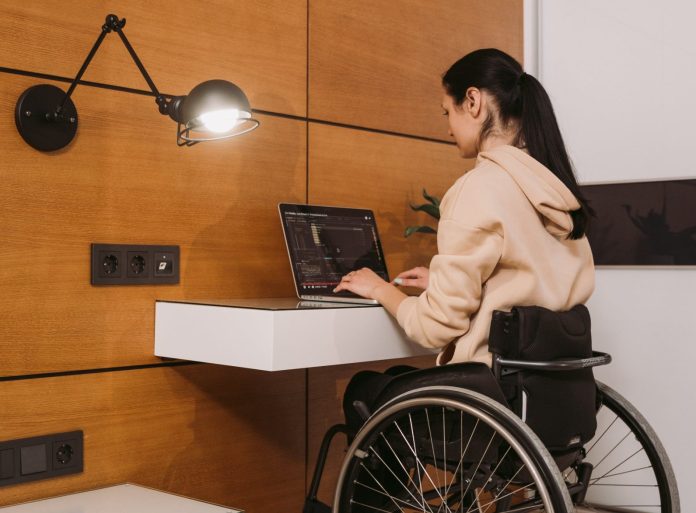Joshua Wintersgill, founder of ableMove and disability rights campaigner, outlines his recommendations for what companies should strive towards to foster an inclusive work culture for disabled people and facilitate their career progression and aspirations
There are 16 million people in the UK who have a disability, and 4.9 million of them are employed according to the latest government statistics. Despite the huge number of disabled people working, the support for them is limited. Legal requirements exist to protect the rights of disabled workers, but even with the ‘reasonable adjustments’, many still are being failed in their place of work as companies lack the knowledge, skills, and awareness of what their employees need. In this article I will share my recommendations for what company leaders might adopt to improve staff training, remove barriers, and crucially support disabled people in their jobs.
Educate and Re-educate
Training employees on inclusion and disability awareness helps dispel bias and reduces stigma. Many companies will already have programmes and policies set out to root out bias and address prejudice and discrimination. However, the effectiveness of these policies and programmes have come into question from charities and disabled people. Developing an understanding in the office and fostering a supportive network between employees starts with practical conversations and exercises to challenge perceptions and promote empathy. Further, company leaders must be at the forefront of these changes and not leave it up to disabled employees to educate others. There are lots of different disabilities and policies shouldn’t be generalised if they don’t meet every disabled employee’s needs.
Harnessing technology
Holistic training is vital to shift attitudes and have a progressive work culture, but practical steps must also be taken, and this includes using the latest technology to support disabled workers. For example, for employees who are deaf tablets enable them to communicate with customers and have more autonomy in their work. For people who have ligament injuries or disorders, ergonomic keyboards and pointing devices work well as they remove the strain they might experience with a normal keyboard. Screen readers assist those with sight loss and remote working tools allow people with mobility issues to work more flexibly. Utilising technology is imperative to maintain equality while making allowances for disabled employees. It is important for managers to understand the needs of their employees and adapt the working day, so they don’t fall behind.
Access all areas
Ensuring the built environment is inclusive for all is crucial. A huge amount of work has gone into making environments more physically inclusive such as changing places, automatic doors, ANPR, lifts, fire evacuation plans (PEEP’s), but more focus is now moving towards sensory-inclusive environments that help people with hidden disabilities or neurodivergence for example. Considering regular accessibility audits is helpful, whist considering new standards for the build environment such as PAS 6463.
Diversifying the hiring process
Facilitating diversity through the recruitment process. By actively seeking to include disabled individuals in the workforce, companies promote equal opportunities and enhance representation, but the work doesn’t stop there. Recruiting from diverse sources, such as job boards specifically targeting disabled candidates or partnering with organisations focused on disability inclusion, can broaden the talent pool and challenge preconceived notions. Facilitating interviews online as an option for those who would prefer (and where possible) would make a more equitable hiring process.
Providing career progression opportunities
Finally, managers should also look at how they can support their employees who have a disability to become leaders. This can involve mentorship programs, training, and succession planning strategies aimed at nurturing talent, recognising potential, and promoting equitable career progressions. Valuing their contribution by rewarding people with promotions. I remember working for a large conglomerate and my manager was so extremely supportive of me, my disability, and my abilities to do the job, he couldn’t praise me enough, and naturally the promotions and opportunities came.
To conclude, creating an inclusive workplace that accommodates and supports disabled employees is not only the moral thing to do but also beneficial for everyone involved. By embracing diversity, companies cultivate a more innovative, empathetic, and productive work environment. Through awareness, accessibility, accommodations, and a commitment to diversity, companies can empower their entire workforce to thrive, contribute their unique perspectives, and play an indispensable role in the organization’s success. Ultimately, a society where all individuals are respected and uplifted will lead to greater opportunities and create role models for future generations who previously wouldn’t have seen the representation.


